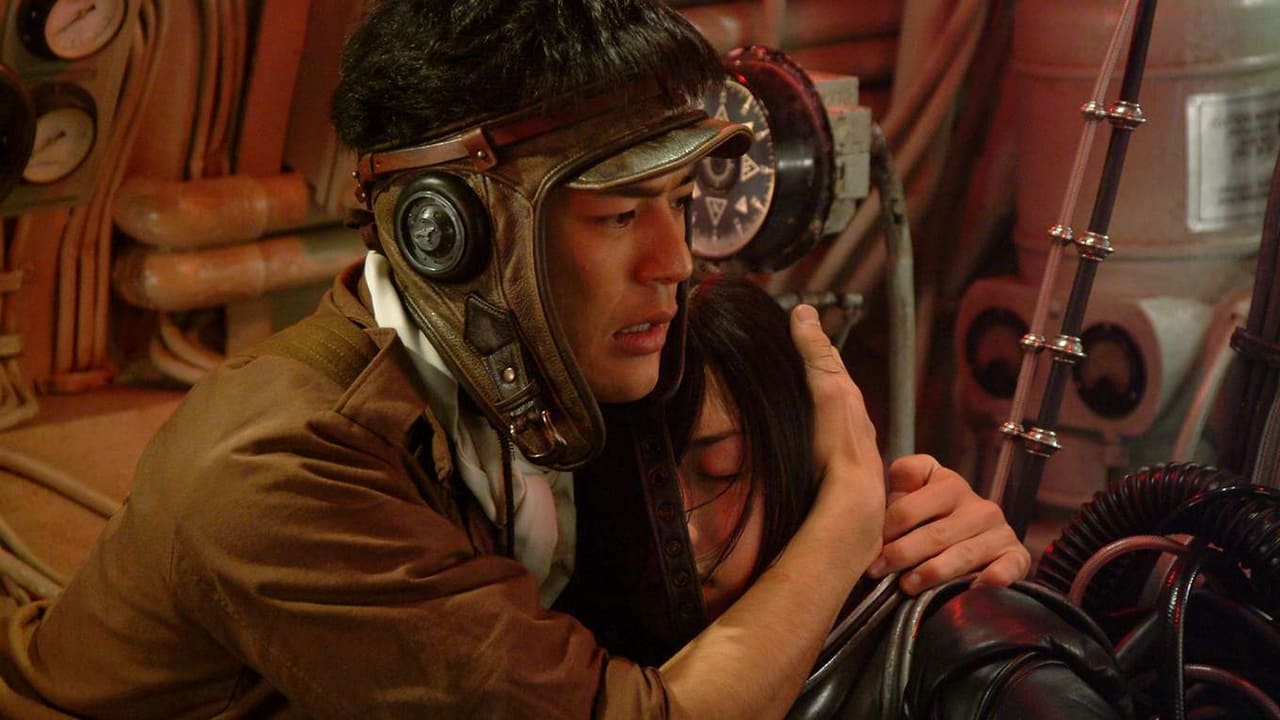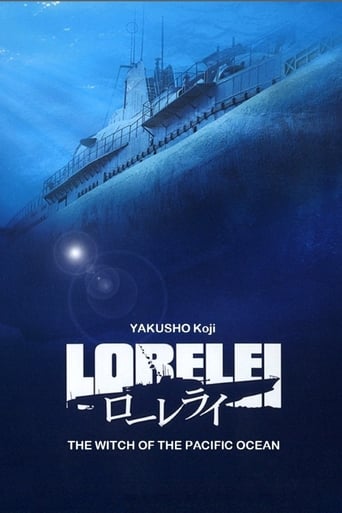

I wasn't sure what to expect from Lorelei. A sub movie, certainly, but not one with such warm characters and subtlety of script. I expected a simple wartime tale, but got so much more.All of the cast give excellent performances (with perhaps the exception of the main villain, who is given to staring madly during emotional moments). But even he does his part justice for the majority of his screen time. The rest have no trouble conveying either their characters or the emotions they are going through. This is particularly important due to the often very much more subtle and under-emphasised nature of Asian facial expressions. Yet here there was no trouble for my poor old Western eyes to understand who was feeling what.Also to be commended in a cinematic age where heroes never die is the concept of noble self-sacrifice, which is evident here. The notion that "Everyone lived happily ever after" is a seemingly uniquely Western one that has gotten out of hand in recent decades. There aren't many Western movies that are willing to kill off characters and those that do often handle it badly (I'm looking at you...new Star Wars trilogy). So it is a pleasant change to be reminded that not everyone has forgotten this concept, or how to implement it.The story also is worth commending. In an age where Hollywood churns out formulaic script after formulaic script, having something which doesn't follow those cookie-cutter writing conventions is like a breath of fresh air. It should be noted that the story is still rather simple, however, but realised in a way that makes you overlook that simplicity. That said, I admit I failed to see the main plot "twist" evne though, in retrospect, it was spammed hugely in the opening minutes. That's okay though. If I fail to spot something that obvious, it usually means I'm enjoying the movie so much that I'm not analysing it, which is rare these days.As far as effects go, they are serviceable by today's standards. The movie was made in 2005, so they are actually pretty good for that time and, barring a few scenes, don't distract you or take you out of the movie. They do their job and you never have to try and figure out what is going on on screen.All in all, there isn't anything I can point at and say was bad... except for maybe the climactic scenes weren't very convincing and could have done with a rethink. The very final scene was rather obvious and formulaic, but done well enough, because it washed the slight disappointment of the climactic action sequence.You'll note I haven't spoiled any of the movie with specifics. That is deliberate. When a movie tries its hardest to be entertaining and makes me pleased I spent the time to watch it, the least I can do is not spoil it for others. So apologies if the rather non-specific comments here leave you scratching your head and wondering if it is worth your time.Who is this movie for? Anyone that remembers the older generation of war movies where the heroes faced impossible odds yet somehow came through will find plenty to like here. Likewise those that are just tired of the tedious nature of much of American cinema and want something that isn't entirely hamstrung by those movie-making conventions, will also find this a refreshing change.SUMMARY: Entertaining and surprisingly subtle and emotional. Well worth your time if you like old war movies.
... View MoreThe slick music is a flaw. It's a pity that traditional Japan music can't be adopted in movie about modern affair. Music sound tedious in a repeated oppressive rhythm, as well as the cadenced music that helped to arose the urgency condition. Perhaps better without the background music. Having watched some Japanese WWII movies. The common narration was: graceful landscape and relics in motherland, dear family members or lovers --everything in country is so beautiful, and all these should be cherished; be forced to frontier; found be cheated by warlord (only when defeated?); but, in any way, soldiers should behave braveness and obedience (approve the real Japanese soldiers' behavior in late stage of WWII); at last, somebody sacrificed for their honor, the survivals represent the hope of new Japan.-- All above in the service of such a mention: the own country is the core, in other words, Japan is the most important. It seems most Japanese turn a blind eye to other nation's suffer, and addict themselves to their own perception. People in occupied territory means nothing, and if they does, they should appreciate the occupiers from the same Asia for their 'liberation' from Westerners. Defeat is not reconciled to -- 'Go down swinging'. If plot not be treated so, the nation's 'self-pride' would hurt. Sometimes, remorse or condemn to warlord are allowed, in an delicate 'apropriate' limit, but it wouldn't account for the main line. Scenarios must be turned around thereafter anyway. Perhaps someone responsibl for movies partially realized the fact, but they just wouldn't recognize it.
... View MoreThe movie is set in the waning days of World War II, Japanese cities are being devastated by firebombing, and Hiroshima has been Atom- bombed. The plot centers on an attempt to prevent further Atomic incineration of Japanese cities by using an advanced submarine to prevent the delivery of other bombs. The Japanese cast was very strong and as others have noted, the American characters which are often third-rate actors in Japanese movies, were at least OK. The submarine was supposedly a late donation from the Nazi's to Japan. In fact in the film, it is almost identical to the French Surcouf submarine, which defected to the allies after France fell to the Germans. The Sci-Fi element is a young girl with an almost telepathic ability to see underwater. (I really don't think this information will spoil anything, but some viewers may be excessively touchy on such details) Other plot twists I will leave unsaid. I was fascinated by the way the Japanese attitude to the war was presented. The link with the Nazi's was somewhat explored and there was much discussion of the faults of the elders of Japanese society for starting a war which caused such chaos to the country. Not to be too critical on this point, but the movie did seem to dwell solely on the harm which befell the Japanese people, with no acknowledgment of the harm the Japanese did to others by starting an aggressive war in the first place. The Japanese have been criticized on this issue in other contexts, notably by the Chinese. Not that this detracts from the movie, but is is something we Gaijin (foreigners) may note.Nevertheless there is a sensitivity shown in the telling of the story which is quite remarkable given the subject matter. I found the movie to have a literary and almost poetic feel compared to a comparable American film. I mean have you ever seen a discussion of Dostoyevsky in an American Movie? One understands the suffering of a people, few of whom had any say in starting the disastrous events of the war. The soldiers mostly just "followed orders". The civilians of the cities of Japan, ended up as the real victims.The subplot involving the Captain on shore who orders the submarine on its mission, is not so much hard to follow as to understand the motivation. Possibly it makes more sense to the Japanese audience, who would be familiar with the book on which this is based.The computer work was not up to western standards, but was serviceable. I was left wondering if anyone would be prepared to hire an American or New Zealand lab to redo this to a higher standard. To do so would make the movie a genuine epic.
... View MoreThe film reveals the Japanese's view of themselves as "the victim of Atomic bomb". The crew of the submarine Lorelei believe that they are fighting for their homeland and the future of Japan and hence sacrifice themselves at the end of the movie by surfacing on the water (even though the area is surrounded by US fleets) so that they can take down the US airplane which was carrying the third atom bomb heading for another drop in Japan. Of course the whole situation is fictional but the Japanese should know that they never needed to see Hiroshima or Nagasaki if those stupid Japanese war maniacs and that irresponsible Emperor had surrendered in prior.
... View More